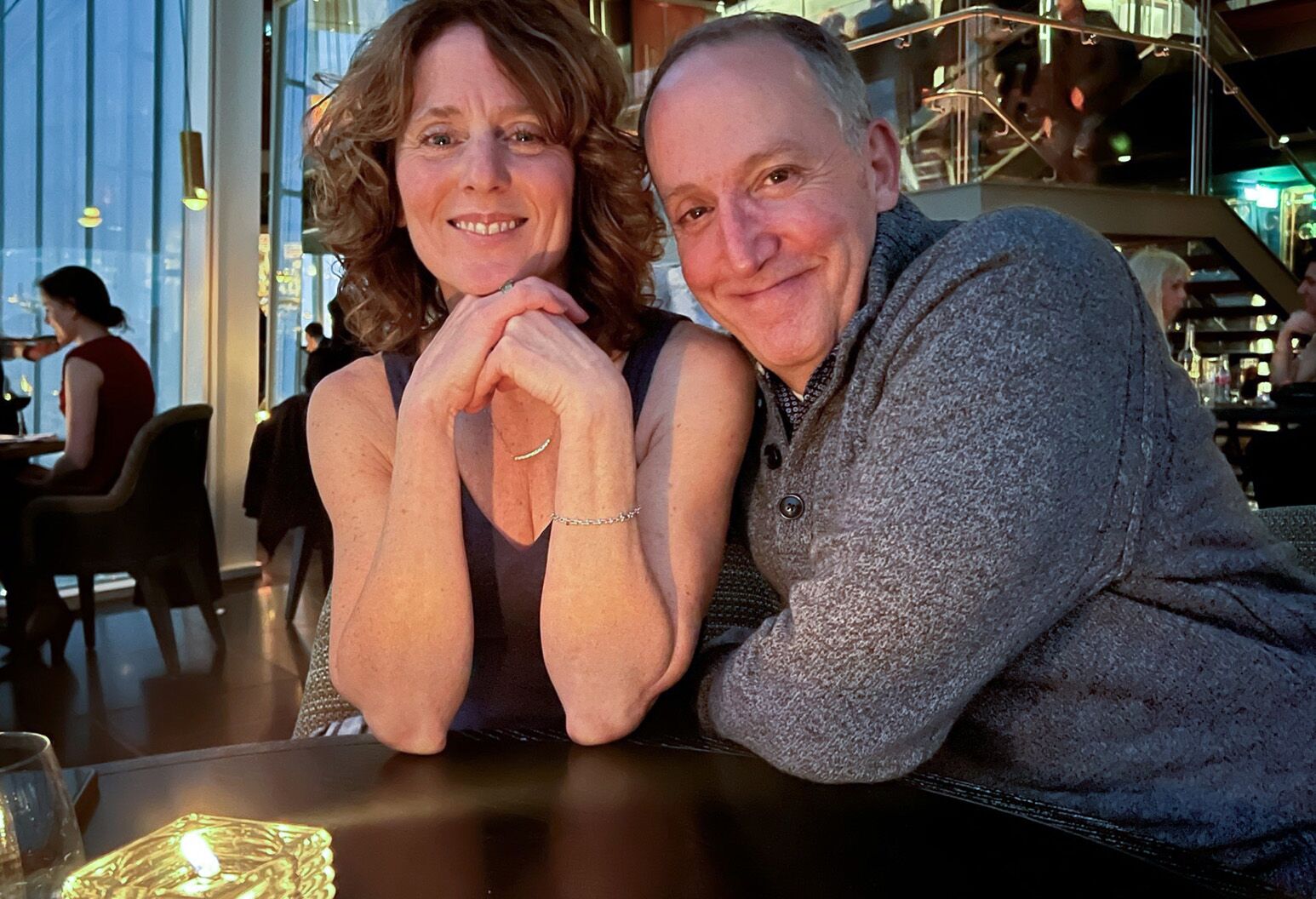Our representatives are available to schedule your appointment Monday through Friday from 9am to 5pm.
For a Northwell ambulance, call
(833) 259-2367.

In early 2023, Phil Briskin took a spill on a patch of ice near his home in Rochester, Michigan, and whacked his head. The mishap turned out to be a lifesaver.
Briskin headed to a local emergency room, where a CT scan ruled out a concussion but revealed something ominous: a mass of tissue engulfing several vertebrae in his neck. Follow-up imaging suggested the mass — which surrounded an artery leading to his brain as well as several nerve groups — could be a chordoma.
A chordoma is a rare cancerous tumor, which affects about one in one million Americans. The cause is most often unknown, but it appears along the spinal column and is often fatal if left untreated. Chemotherapy and radiation aren't very effective for chordomas. Surgical removal is therefore the preferred method of treatment, in particular “en bloc” surgery.
Chordomas are classified by their location along the spine.
“It was a stunner,” says the 63-year-old Briskin, who stays active and loves to take long weekend rides on his road bike. “Here I took all these pains to take care of myself, and this is what’s going to get me — one of the rarest forms of cancer on earth?”
Briskin quickly determined that local neurosurgeons had never operated on a chordoma, and even a prominent Midwest institution waffled on doing the biopsy needed to confirm his diagnosis. He felt isolated and frightened — and determined to find the coordinated care that his online research revealed was crucial. Sources like the Chordoma Foundation, an education and advocacy group made up of patients, families, researchers and doctors, made it clear that the only chance a chordoma patient has for long-term survival or cure is if everything is done right from the first stage of treatment.
Briskin and his wife Carrie’s online search netted them a short list of physicians with expertise in chordoma. On that list was Northwell neurosurgeon Daniel Sciubba, MD, MBA, who, coincidentally, had just visited Briskin’s local hospital.
“It’s really strange how it all fell in line,” says Briskin, a seasoned operations and customer support executive. “Northwell seemed more focused and much better coordinated than the other institutions I looked at. Something was pointing me to Dr. Sciubba.”
Last July, the neurosurgeon removed Briskin’s chordoma in a grueling two-day surgery that required operating on his neck from both front and back, and flipping him over to release the tumor’s grip on his spinal cord, nerves and blood vessels.
“Everything was at risk — swallowing, eating, breathing, moving his arms and legs,” Dr. Sciubba says. “It’s a super high-risk but high-reward operation. By taking the tumor out in one piece, this man can be cured forever.”
Briskin is steadily regaining his strength and greedily eyeing his road bike. “I’m not religious but I’m spiritually inclined,” he says, “I look at this and say, it was a blessing to find our way through this as we did.”
Dr. Sciubba stressed the importance of a multidisciplinary team to accomplish such a high-stakes treatment. And Northwell is among a small number of institutions in the U.S. equipped to handle such cases thanks to its chordoma program. Dr. Sciubba says this team continues to take on complex cases, of which about two-thirds are from other states or countries.
Northwell is one of five sites in the country that treat chordoma.
Our representatives are available to schedule your appointment Monday through Friday from 9am to 5pm.
For a Northwell ambulance, call
(833) 259-2367.